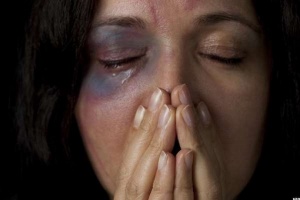
Part I. Mexico
By: Terry Ahtziry Cardenas Banda, attorney, and former professor.
66.1% of women in Mexico have experienced at least one episode of violence. Violence against women is on the rise in Mexico, despite the enactment of different laws to protect women. It is of great importance to keep the community informed of the different means of protection that exist in the case of defenselessness or suffering some type of violence, therefore, this article informs about the different mechanisms that protect women in case of violence, as well as the different institutions that women can go to receive support if they experience some type of violence.
 There are different types of violence that a woman can suffer: physical, psychological, sexual, economic, social, discrimination, white traffic, and mutilation. In Mexico there are about 88 crimes classified in the laws referring to violence against women, however, it varies according to the state and the different forms of punishment. Also, the absence of the subject is denoted in some penal codes of the different federal entities.
There are different types of violence that a woman can suffer: physical, psychological, sexual, economic, social, discrimination, white traffic, and mutilation. In Mexico there are about 88 crimes classified in the laws referring to violence against women, however, it varies according to the state and the different forms of punishment. Also, the absence of the subject is denoted in some penal codes of the different federal entities.
In the Mexican legal systems, there are various rules that protect women against violence. Violence against women must be understood, in a broad manner, as any act or omission, based on their gender that causes any damage or suffering, of any nature.
The different legal instruments that exist in Mexico to protect women against violence are divided between national and international, which are as follows:
- Nationals
- Constitution of the United Mexican States.
- Federal Criminal Code
- General Law for Equality between Women and Men.
- General Law on Women’s Access to a Life Free of Violence.
- Federal Law to Prevent and Eliminate Discrimination.
- Law of the National Institute of Women.
- General Law of Education.
- Federal Labor Law
- General Law of Health
- Constitution of the Free and Sovereign State of Baja California (in BC)
- Penal Code of Baja California (in BC)
- Law on Women’s Access to a Life Free of Violence (in BC)
- International
- Convention on the Elimination of All Forms of Discrimination against Women (CEDAW).
- Committee for the Elimination of Discrimination against Women.
- Inter-American Convention to Prevent, Punish and Eradicate Violence against Women (Belem do Pará).
- Protocol to Prevent, Suppress and Punish the Trafficking of Persons, especially Women and Children.
- Pacific Platform for Action for the Advancement of Women and Gender Equality.
- General Assembly of the United Nations, Declaration on the elimination of violence against women.
- Resolution 52/86 of the General Assembly of the United Nations on crime prevention and criminal justice measures for the elimination of violence against women.
- Resolutions 1325, 1820, 1888 and 1960 of the Security Council of the United Nations.
- Rome Statute of the International Criminal Court.
- Universal Declaration and American Convention on Human Rights.
In the same matter, it is important that women know the different support institutions that exist in Baja California. In case of need women can identify them and go to receive the necessary help, these institutions are divided into public and private, and are the following:
- Public
- National Institute of Women
- Institute for Women for the State of Baja California
- Public Ministry AEDSVI
- Specialized Agency for Sexual Offenses and Family Violence
- DIFs State and Municipal
- Center for Attention Against Domestic Violence in Mexicali (CAVIM)
- Unit against Intrafamily Violence (UVI)
- Office of the Human Rights and Citizen Protection Procurator
- Private
- Family Care and Counseling Center A.C. (CENAFAM)
- Women For a Better World A.C.
- Feminist Group Alaide Foppa, A.C
- Family Improvement Association, A.C.
- Support Foundation for Addicted Woman, A.C.
Likewise, if more information is required from these institutions, it can be found at the following link: http://www.bajacalifornia.gob.mx/inmujer/red_binacional.html.
Both men and women, boys and girls, deserve to live a life free of violence. For this reason, the state and citizens have joined together to envision these laws and institutions to support women who suffer from some type of violence. However, it is also important to promote action not only establish laws and institutions but provide access to all of them, as well as, promote the reporting of crimes of violence. Violence will continue if it is not reported, it is important to report all types of crime whether you are a victim or a witness. It is not easy to report a crime if you feel fear or disappointment with the system, but despite this adversity, you must raise your voice and seek help.
It is time to promote action, inform the community of their rights, promote the reporting of crimes, promote the prosecution of crimes, protect victims of violence and seek mechanisms that help the community to believe in the system and live a true life free of violence.





